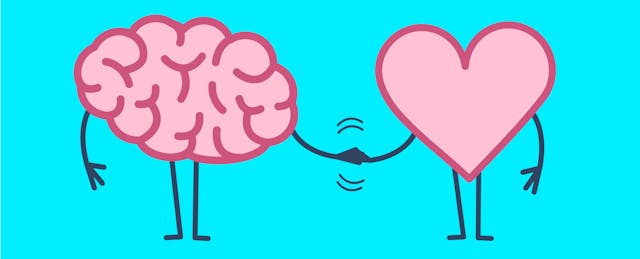Reading changes our brains. Beyond allowing humans to gather and synthesize new information, research shows it is key to cultivating empathy in individuals, too. One study finds this to be particularly true for fictional stories, which allow readers to imagine themselves as other people, in other worlds, with different ideas and challenges.
The effects of reading on the brain are also strongly influenced by the medium through which we read. For a long time, that has been print. And so as digital screens begin to take the place of print books in many classrooms and households, researchers are now looking at how that impacts our ability to process information—and empathize with others.
That was the focus of a talk at the Learning and the Brain conference in San Francisco this week delivered by Maryanne Wolf, director of the Center for Dyslexia, Diverse Learners, and Social Justice at the University of California, Los Angeles. Wolf started off by explaining to an audience of educators and neuroscientists that the human brain wasn’t made to read. Rather, “when the brain has to learn something new, it creates a new circuit, and that’s what reading does,” explained Wolf, who authored the book “Reader Come Home: The Reading Brain in a Digital World.”
In other words, there’s no part of the brain that was designed to read. Instead, making sense of characters and symbols requires the brain to call on other parts of the organ, like the visual cortex, that are used to identify objects or faces. “We take those neurons and we re-propose them so people learn letter patterns and that becomes represented in the back of our brain,” Wolf said.
The way brains create those new neural circuits to read varies depending on the medium a person reads through. A growing body of research shows that reading on print versus digital reflects differently in the brain. And that can have good and bad implications.
Having 24/7 access to screens and the internet makes it easy to quickly find information. And Wolf said that this has a tremendous effect on attention that “will inevitably have a change in our ability to consolidate memory.”
It also changes the way we read. Ziming Liu, a professor of library and information science at San Jose State University, for example, found that skimming is more common in the digital age, along with shortened attention while reading.
Wolf goes a step further: “We don’t just skim. When we are inundated and bombarded [by digital information] we go to the familiar silos of information, those that are less dense, and we allow others to think for ourselves. We go to what confirms our previous thought, rather than be cognitively challenged by new thoughts, whether it be newspapers or different media.”
Wolf suggests that one of the threats of this shift is that it will hurt humans’ ability for deep reading, which she describes as involving empathy, background knowledge, critical analysis, imagery and reflection. For example, rather than having to research and remember background knowledge, webpages that can provide extra context are now a click away.
This loss of deep reading then poses a threat to the ability to think critically and empathize with others, Wolf argues. “This isn’t just about the reading brain, this is about democracy,” said Wolf. “The sum of these processes helps prepare citizens to be critical thinkers and empathetic—or not.”
A common perception is that younger generations who grow up exposed to technology and reading on screens would comprehend what they read digitally better than someone who grew up with less exposure to screens. But that’s not always the case, Wolf said, and even for so-called digital natives, comprehension can still be stronger when reading print.
Removing technology isn’t part of Wolf’s solution. Part of her own work involves studying how technology can help individuals with dyslexia or increase global literacy. “It’s not digital versus print, tradition versus innovation,” she said. “It’s understanding cognitively and effectively what are the implications for reading and thinking for both mediums.”
Wolf instead wants to see a future where humans are “bi-literate,” meaning capable of deep thought when reading from print or digital, Wolf penned in an op-ed for the Guardian in 2018.
“We are in this moment where ‘other’ is becoming a threat,” Wolf said on Saturday. “The compassionate imagination of childhood begins with understanding that there are others outside of ourselves. We have never needed the role of story more than right now for our children to understand a compassionate sense.”


